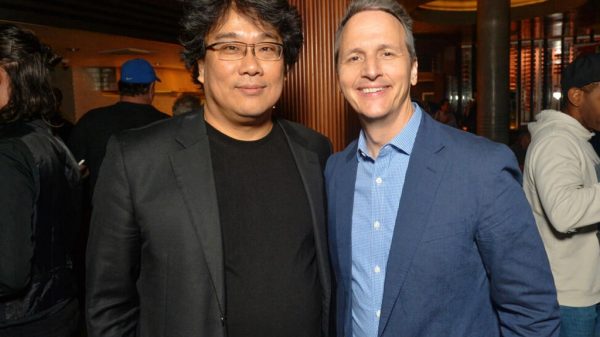Generalised gender perceptions

Hisham M Nazer:
A FIGHT against generalisation should not generalise, otherwise it becomes what it criticises and creates, often unknowingly, a vicious loop. There is a version of ‘ism’ that is mainly based on personal experience or simply takes into consideration a much contextualised scenario to jump into conclusions. In that case the ‘I’ becomes ‘we’ and ‘one particular person’ becomes ‘all of them’. Our tendency to apply our personal presuppositions — bits of which are often gathered from real experiences — on everything without any room for particular treatment: is not that the very thing all intellectuals, no matter which ‘ism’ they belong to, philosophically oppose, and often struggle to overcome?
The struggle of men and women in office space of Bangladesh has been a topic many have issues with. Many believe one or the other is either a victim of differential treatment or a reaper of undue advantages. It is only natural for me as well to ponder on this issue since there are ‘female’ employees — this very categorisation of employees seems unnecessary — in my office too.
I do not know if an objective remark, humble though it may be, is even possible when it comes to any kind of estimation, but I have seen some of my colleagues, in my department and outside, who have been successful in making their presence meaningful and contributory despite the intervention of otherwise pressures of personal life that are ‘supposed’ to remain hidden from the public eyes.
And then again, I know a few who are just the opposite. To be clear from the very beginning, the situations are not gender-specific. I believe everywhere the scenario is somewhat the same. But there is a number of people who want to believe that women need to give more efforts to be recognised whereas men by means of non-professional (not necessarily ‘un’) socialisation enjoy the same without much effort and vice versa. I am only curious, and nothing else, to explore the propositions and if we can make ‘incidents’ markers of gross gender estimation.
What I, biologically a man, am struggling to say — is there no room for criticism if someone is a woman just because there is a version of radical feminism in Bangladesh that is still in the ‘feminist phase’ which lasted from 1880 to 1920 in the western part of the world? What if her performance does not meet the criteria to secure her a promotion? I am certain that everyone knows — besides assessment via impression and performance reports, man or woman, there are solid bars one needs to cross. I am not trying to imply that it is always difficult for men, but it is equally true that it is not always easy for women as well to excel and climb the ladder.
Although reinstating the fact sounds redundant, there are always certain women who are dedicated towards their jobs. If we observe them carefully, we will find them reaping what they sow. Besides those male employees who use other means desperately and unashamedly to be in the ‘good book’, it should be considered at least strange if we have never come across a female sycophant in our career who too is good at ‘mixing it up’. I believe it is more character-specific than gender-specific. After all, we can keep talking about these issues from the grounds we are standing in. There is no way we can prove statistically to what extent an individual can go, ‘to swell a progress, start a scene or two’. Any ‘ism’ cannot function properly without processable data. And even with data come the positionality of the analyst and the question of reflexivity that takes us back to square one.
Office dynamics is an ungovernable matter, and that is why our talking about it with the words like ‘most’, ‘many’, ‘certain’ is un-statistical. Agreeing wholeheartedly that women unjustifiably need to struggle more in some spaces, it is also not a rare thing to see some men too need to struggle to become a cog in the machine. But that point is irrelevant here since we are not putting men and women into any kind of scale to prove whose struggle is more painful. Also, exception they say cannot be the example so I cannot clearly express just what I mean and show my readers the scenarios I have encountered and convince them otherwise. I do not want to convince, and this is not a defence.
Unlike ‘female’ and ‘feminine’, ‘feminist’ is a political position that requires certain sensibilities acquired through ideological transformations, not for the better, but for the ‘right’ and ‘rights’ (hence the ‘ism’ after feminism). It is a personal preference, a kind of expert advocation for natural, albeit contextual, human rights that are often denied to women. And then there is this question of a specialised mode of language/expression that throughout the different phases of feminism, feminists adopted to shift their focus, necessitated by the change of time and the difference of places, and probe into the psychology of the world.
Are women by birth feminists? Are they entitled to enjoying an unchallengeable position of a feminist, with or without proper understanding of the ism, only because they are born females? Before becoming a true feminist, what trials a man needs to go through? How does he prove? What exact parameters are there to measure his genuineness since he cannot be readily feminist due to his lack of female sexual orientation and, therefore, female experience?
Can a man be a ‘proper feminist’ after all, and will women still listen to him if he on one occasion criticises a particular trait in a particular portion of people, who happens to be women, that needs to be addressed only because it is logical and necessary? Or should he remain silent respecting yet another common trait of wholesale defence by the different sex, not to use the word ‘opposite’?
‘Ism’ forms on the basis of reality, and that is why collective women experience forms for many an idea of feminism. Reality is rawer, more immediate than any mere theory, but is it possible for anyone to become a ‘sex supremacist’ having only an idea of feminism that is at the same time engaging and, at moments, enraging?
Acknowledging that women go through hurdles unnecessarily in most of the cases in most places, can a man criticise particular women for not trying hard enough because he believes everyone should try hard, give their best, if they are truly professional and ‘dedicated’?
By now I believe it is evident that I have certain ‘opinions’ regarding work-ethics and I do not discount men nor women from that. But this is not about me or what I believe. I know women, like men, should be treated according to their capability and performance. Everyone will hopefully agree that there is no room for sympathy/antipathy for any gender from a strict authoritative standpoint. If there is, we should immediately and passionately raise voice against that.
The peculiar ‘problem’ arises when after being aware of the politics of representation, it becomes impossible to see a generalisation of any sort and not be ‘triggered’. The man/woman debate is almost irrelevant when we know the complaints are real and the whole system of an institution defends the gender bias. That is the common scenario in many places, but the only problem is, being educated individuals, we cannot depend on ‘common scenarios’ to extrapolate when issues around ‘wo/man’ are in question.
Language is tricky and ever inadequate. One might think that I am deliberately deviating from the concerns that women go through hurdles and that matters, and that we have to think about solutions. Why can I not just agree that women in offices do have to face more problems than men? If anyone asks me this question — ‘what do you know of the struggles women have to go through every day?’, I will probably lower my head, for two reasons: one being I cannot possibly ever conceive the pain ‘most of them’ go through, and the other reason is the struggle is not so unknown to me.
I hope no one will pin me in one of the two binary categories of ‘man’ and ‘woman’, but I want to say that my conception of the world and everything that happens in it is limited because I cannot experience everything, nor can anyone else’s experience be complete. Hence, we talk from our limited scopes (the limitation is not a fault), we talk about what ‘we’ have experienced/seen. That hardly qualifies us to talk, no matter how intelligently and forcefully we can, about man and woman in general, and still when we engage into that kind of battle out of a kind of philosophical conviction, the real ‘specific’ problems remain unattended; the real ‘perpetrators of bifurcation’ remain uncriticised and uncorrected.
Hisham M Nazer is an assistant professor of English, Varendra University.





























Leave a Reply